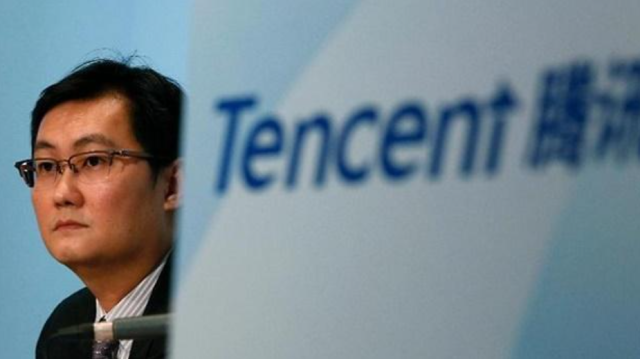
Editor's Note: This article is the 24th installment in our series on Asia's top 100 companies, exploring the strategies, challenges, and innovations driving the region's most influential corporations.
SEOUL, June 26 (AJP) - Tencent Holdings is one of China’s most powerful technology companies.
It reported revenue of 180.02 billion yuan ($25.1 billion) in the first quarter of 2025, marking a 13 percent increase from a year earlier. The company’s financial performance underscores its transformation from a messaging startup into a digital conglomerate with sprawling influence in entertainment, finance, artificial intelligence and cloud computing.
Founded in 1998 by Ma Huateng and four others, Tencent began with QQ, a desktop instant messaging service that captured the early Chinese internet audience. Over the next two decades, the Shenzhen-based firm evolved into a dominant player across China’s digital landscape.
As of June 2025, Tencent holds a market capitalization of approximately $585 billion, ranking it the 16th most valuable company in the world and the largest internet company in China by market value.
Gaming remains Tencent’s largest and most profitable business. The company generated 42.9 billion yuan in gaming revenue in the first quarter, fueled by marquee titles such as Honor of Kings, Peacekeeper Elite, and the global hit PUBG Mobile.
Tencent has further cemented its global gaming presence through high-profile investments and acquisitions, including full ownership of Riot Games and substantial stakes in Epic Games and Supercell.
Its newest success, Delta Force, reached 12 million daily active users in April, making it the sixth most popular mobile game worldwide and the most successful new release in the past three years. The title’s breakout performance illustrates Tencent’s continued dominance in the mobile gaming market, particularly in China, where smartphones are the primary gaming device for hundreds of millions.


No product better exemplifies Tencent’s hold on everyday life in China than WeChat.
Launched in 2011, this app has grown far beyond messaging to become a platform for social networking, payments, e-commerce, business services, and more.
With more than 1.3 billion monthly active users, WeChat is often described as a “super app,” and it has become nearly indispensable in China, used for everything from chatting with friends to paying utility bills and accessing government services.
The app’s payment function, WeChat Pay, has grown into one of China’s two dominant mobile payment systems, rivaling Alibaba’s Alipay. The seamless integration of social and financial services has enabled Tencent to expand its footprint into wealth management, insurance, and small-scale lending.
As global tech giants race to build artificial intelligence capabilities, Tencent is positioning itself as a serious contender.
The company increased capital expenditures to 27.5 billion yuan in the first quarter, a 91 percent jump from a year earlier, with much of the funding directed toward AI infrastructure and development.
Its proprietary large language model, Hunyuan, powers applications ranging from chatbots like Yuanbao to targeted advertising systems and in-game personalization.
“AI is already contributing meaningfully to revenue,” Martin Lau, Tencent’s president, said during a recent earnings call. “We are seeing real improvements in engagement and monetization.”
Unlike some rivals that treat AI as a standalone venture, Tencent has opted to integrate it directly into core business units — a strategy designed to enhance, rather than disrupt, existing services.
Despite its deep roots in China, Tencent has quietly built an international presence — particularly in gaming — by investing in or partnering with Western companies rather than launching its own branded services in foreign markets. The approach has enabled it to navigate complex regulatory landscapes and geopolitical scrutiny while maintaining influence in some of the world’s most competitive tech sectors.
Rather than attempting to export WeChat to markets dominated by platforms like WhatsApp and Facebook, Tencent has focused on sectors where its technical prowess and capital provide clear advantages. That includes gaming, as well as cloud computing and enterprise services.
With a foundation built on domestic ubiquity and a growing portfolio of global assets, Tencent is poised to benefit from multiple long-term trends: the expansion of mobile gaming, the proliferation of AI applications, and the increasing digitization of business services.
Its integrated approach — using existing platforms to scale into adjacent markets — has proven resilient in the face of shifting regulation and geopolitical headwinds.
As Tencent deepens its investments in artificial intelligence and continues to diversify its revenue streams, it may well shape the next era of global digital innovation — not only as a Chinese titan, but as a truly international tech powerhouse.

Copyright ⓒ Aju Press All rights reserved.




